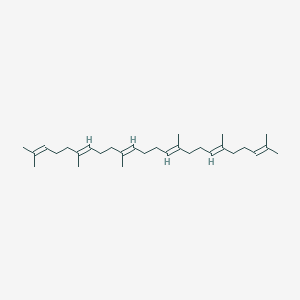-
Categories
-
Pharmaceutical Intermediates
-
Active Pharmaceutical Ingredients
-
Food Additives
- Industrial Coatings
- Agrochemicals
- Dyes and Pigments
- Surfactant
- Flavors and Fragrances
- Chemical Reagents
- Catalyst and Auxiliary
- Natural Products
- Inorganic Chemistry
-
Organic Chemistry
-
Biochemical Engineering
- Analytical Chemistry
- Cosmetic Ingredient
-
Pharmaceutical Intermediates
Promotion
ECHEMI Mall
Wholesale
Weekly Price
Exhibition
News
-
Trade Service
Is drinking milk good for health?
Drinking milk has a long history in human society.
Milk is rich in protein, calcium, fat and a variety of trace elements.
In a new study published in the International Journal of Obesity on May 25, Beijing time, researchers from University College London and the University of Reading analyzed data from more than 1.
9 million participants.
Diet is a major determinant of cardiometabolic diseases, and some studies have shown an association between the consumption of milk and dairy products and cardiometabolic risk factors.
Because high-fat dairy products increase the intake of saturated fat and cholesterol and adversely affect cardiovascular health, saturated fat and cholesterol have been shown to increase blood cholesterol and the risk of subsequent development of cardiovascular disease.
However, none of the above research conclusions provide evidence of beneficial or harmful causality.
To this end, the researchers conducted this Mendelian randomization study, using lactase-related mutations in the lactase gene as a variable to obtain evidence of a causal relationship between milk intake and cardiometabolic characteristics.
Lactase is responsible for digesting lactose and is encoded by the lactase gene (LCT).
The functional single nucleotide polymorphism (SNP) site rs4988235 located upstream of the LCT gene has been shown to affect the transcription of lactase and control the distribution of lactase phenotypes in the population.
In this study, the researchers analyzed the data of 1,904,220 participants in three large-scale population studies (British Biobank, the 1958 British Birth Cohort Study, and the Health and Retirement Study of American Researchers) and found "T" and so on Alleles are significantly related to cardiovascular disease-related risk factors, such as higher BMI, lower levels of total cholesterol and low-density lipoprotein cholesterol (LDL-C, commonly known as bad cholesterol).
In addition, through Mendelian randomization analysis of two samples, the researchers confirmed that milk intake is higher with higher BMI and lower levels of LDL-C, high-density lipoprotein cholesterol (HDL-C, commonly known as good Cholesterol) and the causal relationship between total cholesterol.
In summary, this study confirmed the causal relationship between genetically detected milk intake and cardiometabolic phenotype, where the "T" allele is associated with higher BMI and lower levels of LDL-C and total cholesterol.
related.
The lead author of the study, Karani Vimaleswaran, a professor in the Department of Human Nutrition at the University of Reading, said: “Although the BMI and body fat levels of participants who drank more milk increased slightly, our research clearly shows that higher milk intake is not An important factor that increases the risk of cardiovascular disease.
We are still unclear whether it is the fat content in milk that causes the cholesterol level to decrease, or it is due to some unknown'milk factor.
Reference materials:
[1] Is drinking milk good for health?
Drinking milk has a long history in human society.
Milk is rich in protein, calcium, fat and a variety of trace elements.
It is an important source of nutrients in our diet.
The latest edition of the "Dietary Guidelines for Chinese Residents" recommends that adults consume 300 ml of milk per day.
In a new study published in the International Journal of Obesity on May 25, Beijing time, researchers from University College London and the University of Reading analyzed data from more than 1.
9 million participants.
, Provides genetic evidence for the association between milk intake and body mass index (BMI) and serum cholesterol levels.
Studies have found that people who regularly drink milk have a higher BMI than those who do not drink milk, but their levels of beneficial and harmful cholesterol are lower.
In addition, further analysis showed that people who regularly drink milk have a 14% reduction in the risk of coronary heart disease.
Diet is a major determinant of cardiometabolic diseases, and some studies have shown an association between the consumption of milk and dairy products and cardiometabolic risk factors.
Because high-fat dairy products increase the intake of saturated fat and cholesterol and adversely affect cardiovascular health, saturated fat and cholesterol have been shown to increase blood cholesterol and the risk of subsequent development of cardiovascular disease.
In addition, milk is the main source of calcium and a risk factor for arterial calcification.
However, none of the above research conclusions provide evidence of beneficial or harmful causality.
To this end, the researchers conducted this Mendelian randomization study, using lactase-related mutations in the lactase gene as a variable to obtain evidence of a causal relationship between milk intake and cardiometabolic characteristics.
Lactase is responsible for digesting lactose and is encoded by the lactase gene (LCT).
The functional single nucleotide polymorphism (SNP) site rs4988235 located upstream of the LCT gene has been shown to affect the transcription of lactase and control the distribution of lactase phenotypes in the population.
It is known that the'T' allele of rs4988235 is related to the persistence of lactase, and it has been shown to increase the activity of the LCT gene promoter after binding transcription factors.
In this study, the researchers analyzed the data of 1,904,220 participants in three large-scale population studies (British Biobank, the 1958 British Birth Cohort Study, and the Health and Retirement Study of American Researchers) and found "T" and so on Alleles are significantly related to cardiovascular disease-related risk factors, such as higher BMI, lower levels of total cholesterol and low-density lipoprotein cholesterol (LDL-C, commonly known as bad cholesterol).
In addition, through Mendelian randomization analysis of two samples, the researchers confirmed that milk intake is higher with higher BMI and lower levels of LDL-C, high-density lipoprotein cholesterol (HDL-C, commonly known as good Cholesterol) and the causal relationship between total cholesterol.
Carriers of the'T' allele reduced the risk of cardiovascular disease by 14%.
In summary, this study confirmed the causal relationship between genetically detected milk intake and cardiometabolic phenotype, where the "T" allele is associated with higher BMI and lower levels of LDL-C and total cholesterol.
related.
The researchers said that before recommending changes in the consumption of dairy products to prevent cardiometabolic diseases, large-scale intervention trials are needed to determine the causal relationship between milk consumption and cardiovascular disease risk.
The lead author of the study, Karani Vimaleswaran, a professor in the Department of Human Nutrition at the University of Reading, said: “Although the BMI and body fat levels of participants who drank more milk increased slightly, our research clearly shows that higher milk intake is not An important factor that increases the risk of cardiovascular disease.
We are still unclear whether it is the fat content in milk that causes the cholesterol level to decrease, or it is due to some unknown'milk factor.
' (China Biotechnology Network WeChat public account)
Reference materials:
[1]







